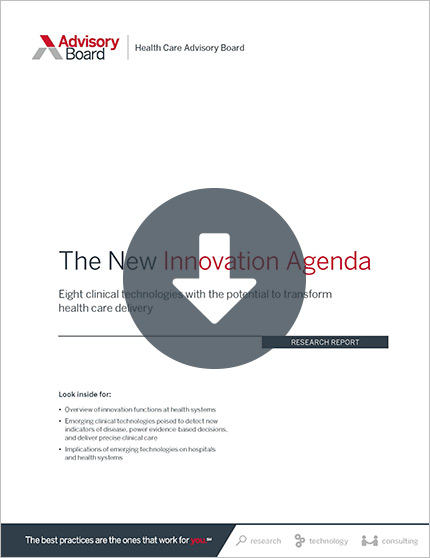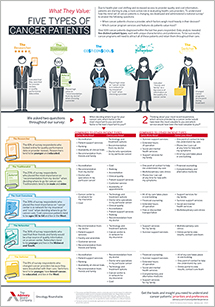Auto logout in seconds.
Continue LogoutAt least five scientists contributed to the Nobel Prize-winning research that led to the development of cancer immunotherapy, but only two were honored with the Nobel, leading some experts to question whether the Nobel committee made the right choice.
Oct. 9 webconference: Get up to speed on the latest market trends in oncology
Who won?
U.S. scientist James Allison and Japanese scientist Tasuku Honjo were awarded the Nobel Prize for Physiology and Medicine on Monday for discovering the immune system's ability to attack cancer, which "constitute[s] a landmark in [the] fight against cancer," the Nobel committee at the Karolinska Institute said in a release.
In the 1990s, Allison's lab discovered that, when inhibited, a molecule on the surface of T-cells called CTLA-4 can cause the body to release T cells to fight cancerous tumors.
Honjo conducted similar research on a protein called PD-1 with the help of immunologist Gordon Freeman. After 10 years, Honjo and Freeman reached a similar conclusion to Allison and found that blocking the protein released T cells that target and attack cancer.
Their discoveries led to the development of drugs known as "checkpoint inhibitors," which mobilize the body's own immune system to attack tumors.
Popular immunotherapy treatments, such as ipilmumab, which treats advanced melanoma, and pembrolizumab, which helps the immune system fight tumors, have become an alternative to surgery, chemotherapy, and radiation for cancer patients.
Numerous research discoveries lead to immunotherapy
However, while Allison's and Honjo's research undoubtedly contributed to these developments, some experts say the Nobel Prize winners were not the only researchers to play a critical role in the development of checkpoint inhibitors.
According to STAT News, experts in cancer immunotherapy were "shocked" that the Nobel announcements this year excluded at least three researchers who were major contributors to the research behind cancer immunotherapy: Freeman, Lieping Chen of Yale University, and Arlene Sharpe of Harvard Medical School.
While Honjo and Freeman's team found PD-1 in mice, Chen discovered the human version of the protein, called PD-L1, one year prior, STAT News reports.
In addition, Sharpe of Harvard Medical School, along with Freeman, discovered that antibodies can block the PD-1 or PD-L1 proteins to revive T cells and, according to her colleague, was "ultimately responsible for the T cell death observed in how cancer cells evade the immune system."
After Monday's announcement, Freeman said he was "disappointed not to be recognized for his contributions," adding that his and Sharpe's "discoveries were foundational," in the development of cancer immunotherapy drugs like PD-1 inhibitors Keytruda and Opdivo. He added that it was more "accurate" when organizations like the Warren Alpert Foundation awarded him, Honjo, Sharpe and Chen for their discoveries.
What about Allison's research?
Allison's lab wasn't the only one pursuing checkpoint blockade as an anti-tumor strategy, STAT News reports.
Jeffrey Bluestone of the University of California, San Francisco, and colleagues also published findings concluding that CTLA-4 is a "negative regulator" of T cell activation—a year before Allison did, STAT News reports.
However, Allison's lab in 1994 was the only one to demonstrate that mice treated with monoclonal antibodies against CTLA-4 showed a "spectacular" response, according to the Nobel committee, with their tumors disappearing.
When asked about the possible oversight, members of the Nobel committee said they were willing to discuss the laureates but would not answer questions about scientists who had not been chosen.
'Rule of 3' that caps the prizewinners—and spurs controversy
This year's selection isn't the first that's drawn a response from critics, STAT News reports. And a deeper read of the Nobel committee's selection rules suggests it probably won't be the last.
In 1968, the Nobel foundation ruled that only three laureates can win any Nobel Prize, which often leads to disagreements over which laureates the Nobel committee chooses to honor.
Chen on Monday said he disagrees with "the rule of three" and said it causes "many scientists [to] spend a lot of time promoting themselves, rather than doing discovery to solve the problem."
Separately, Venkatraman Ramakrishnan of Britain's Medical Research Council, a winner of the 2009 Nobel Prize in Chemistry and president of the Royal Society, said, "[T]he rule of three is inappropriate to 21st-century science."
While some have pushed back against this year's prize selection, others thought the decision was fair. "I think they got the right two people," said Fred Ramsdell, vice president of research at the Parker Institute for Cancer Immunotherapy (Begley, STAT News, 10/1; Grady, New York Times, 10/1).
Oct. 9 webconference: Get up to speed on the latest oncology market trends
Get a jump start on next year's strategic planning initiatives. Use this webinar to inform your next oncology service line strategy meeting and build a strong foundation for discussion.
Don't miss out on the latest Advisory Board insights
Create your free account to access 1 resource, including the latest research and webinars.
Want access without creating an account?
You have 1 free members-only resource remaining this month.
1 free members-only resources remaining
1 free members-only resources remaining
You've reached your limit of free insights
Become a member to access all of Advisory Board's resources, events, and experts
Never miss out on the latest innovative health care content tailored to you.
Benefits include:
You've reached your limit of free insights
Become a member to access all of Advisory Board's resources, events, and experts
Never miss out on the latest innovative health care content tailored to you.
Benefits include:
This content is available through your Curated Research partnership with Advisory Board. Click on ‘view this resource’ to read the full piece
Email ask@advisory.com to learn more
Click on ‘Become a Member’ to learn about the benefits of a Full-Access partnership with Advisory Board
Never miss out on the latest innovative health care content tailored to you.
Benefits Include:
This is for members only. Learn more.
Click on ‘Become a Member’ to learn about the benefits of a Full-Access partnership with Advisory Board
Never miss out on the latest innovative health care content tailored to you.


